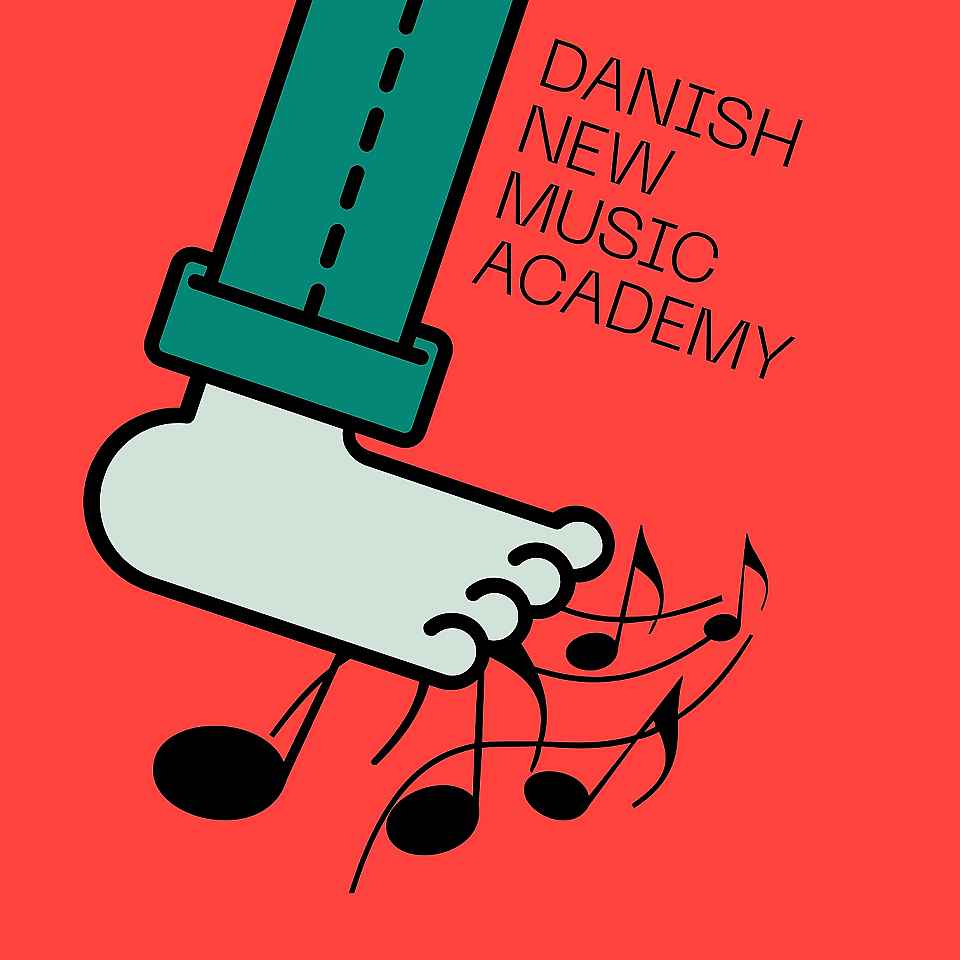The course brings together twelve early-career musicians (six composers, six performers) for a week of concerts, seminars, workshops, and rehearsals, that aim to create and explore new relationships between composers, musicians, and audiences.
We asked one of the initiators, violinist Sofie Thorsbro Dan a few questions about the project.
What motivated you to establish The Danish New Music Academy?
“The idea was born during the covid-19 lock down in 2020 in conversations between James Black, Anja Nedremo, Fei Nie and me. Fei and I had both attended the Bang on a Can summer course in 2018 and inspired by that we wanted to establish an environment where traditional notions of performers and composers are set aside, fostering collaboration and mutual learning instead. Rather than organizing just another masterclass with tutors teaching you how to play Sciarrino, Ferneyhough etc. we wanted to create an open space for interaction and exchange with a focus on presence and time to dwell on the process.”
How did you structure the course to achieve that?
“One important feature is that one entire day is dedicated to creating 24-hour pieces. We have put together four groups with a composer, instrumentalist, and one of the visiting artists or organizers in each. Other festivals experiment with fast written pieces, but we wanted to expand it and give the participants a chance to really focus on that process.
We have also tried to move away from the classic notions about teachers, masterclasses, and rehearsals in general. We have selected the repertoire for a concert, but we won’t dictate the rehearsals – we are there to guide, inspire and answer questions.”
Why do you find it so important to strengthen the relationship between composers and instrumentalists?
“We believe, that when you perform new music, you should focus on the process. I am sure that all musicians today would have loved to be able to work closely with Beethoven or Bach, but this is here and now and we want to make sure to get the most out of the composers who are here today. Instrumentalists can learn so much from the composers and vice versa. We see it as our obligation to start communicating more than we have done so far.
Most courses and festivals keep different elements, such as composer seminars and instrumental masterclasses, separate. However, we aim to integrate these to encourage greater exchange. In Denmark, there's no tradition of introducing contemporary music early in music education, and later on, there's a clear division – you either play contemporary or classical music. We aim to mix this up as well.”
What was the experience from the festival in 2022
“There was an absolutely amazing atmosphere at the first festival in 2022. It was obvious that the relationship between the participants and organizers was characterized by a great amount of trust. You learn the most from each other if you get to do things together, off stage and on stage and we were all there for all of it.
This year we even have a performance at the concert on 5 July, Greta Eacott’s Breathing Exercise, where everyone will be on stage performing together, the twelve participants, the visiting artists from Aksiom, and the organizers, James Black, Anja Nedremo and myself. I don’t know if any other festival has done that before, bringing everyone together in that way and seeing what happens.”
The Danish New Music Academy brings together participants from 9 countries – what is it about the Danish new music environment that attracts musicians and composers from all over the world?
“The music composition scene in Denmark is highly regarded internationally. I have observed this firsthand while performing or studying with ensembles abroad. Denmark offers excellent opportunities for both established and emerging composers, making it an attractive destination for international students and musicians. Aarhus, in particular, is renowned for its contributions to contemporary music. That said, the Danish New Music Academy aims for an international profile, and all the Nordic countries are represented in one way or the other at the festival.”

Concerts
The concerts at Danish New Music Academy are all open to the public, they take place at Institut for (X) and Volume in Aarhus and entrance is free. Find all concerts listed below and find more information at www.danishnewmusicacademy.org
Concert #1: 1st July, 19.30 @ Institut for (X)
Aksiom Ensemble (NO) perform music by Tine Surel Lange, Lauri Supponen, and Marcos Balter, as well as some free improvisation.
Concert #2: 2nd July, 19.30 @ Institut for (X)
Solo performance by extraordinary, multitalented accordeonist and interdisciplinary artist Andreas Borregaard (DK). Music by Jessie Marino and Philip Venables.
Concert #3: 3rd July, 19.30 @ Institut for (X)
24 hour laboratory. New music cannot get newer than this. The academy presents completely new works created over the previous 24 hours.
Concert #4: 5th July, 19.30 @ Volume
Repertoire concert. The participants present some of the most exciting music from the last few years. Music by Greta Eacott, Yu Kuwabara, Juliana Hodkinson, Niels Rønsholdt, Tomi Räisäinen, Tine Surel Lange and Malin Bång.
Concert #5: 6th July, 19.30 @ Volume
Newly-written works by the composers from the Academy. DNMA presents a diverse capsule collection of some the freshest and most intriguing young compositional voices from around the world.
Danish New Music Academy is supported by Art Music Denmark · Augustinus Fonden · Hoffmann og Husmands Fond · Knud Højgaards Fond · Politiken Fonden · Statens Kunstfond · Toyota Fonden · William Demant Fonden · KODA Kultur · Aage og Johanne Louis-Hansens Fond · Det Jyske Musikkonservatorium
